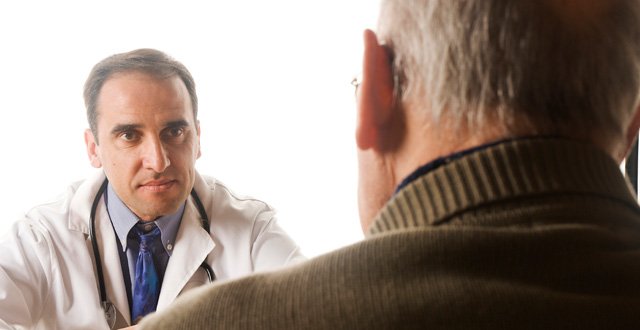
GP-led primary care is the foundation of a single-tier health service. Primary care should be the first point of contact between people and their health service, providing a comprehensive array of services, including prevention, health promotion, acute care, health status assessment, diagnosis, appropriate referral to secondary care when needed, chronic disease management, and end-of-life care. The majority of health needs should be delivered in the community, with only acute, urgent episodic care and complex disease management being delivered within hospital services.
Primary care delivered in the community and secondary care delivered in hospital should not be separate entities. There needs to be a new innovative integration of primary and secondary care so that patients are streamed from the community into the hospital system in an actively-managed, highly-organised manner that is efficient and effective. This requires consultation, trust and mutual respect among all the principal care providers, managers and support personnel. Up to now, primary community care and secondary hospital care have functioned separately from one another, with complex referral pathways linking both in a mostly impersonal way, with little direct meaningful communication. This gap in communication and organisation needs to be addressed urgently if progress is to be made in moving to a health service in which we can take pride. This integration will require substantial change in how we organise our health service.
General practice needs to be properly resourced and supported. At the moment, Irish general practice is underfunded, has a serious manpower crisis, has low morale, is excluded from healthcare planning and does not have the capacity to fulfil its potential. Transferring extra responsibilities and additional work to Irish general practice in its present state is going to be overwhelming. A generation of young GPs will opt out of Irish general practice by emigrating or working limited hours. Established GPs will retire as a result of frustration, stress and burnout, coupled with the inability to deliver an effective service while maintaining the financial viability of their practices.
A new GP contract must be delivered urgently and it is the responsibility of the medical representative bodies, the HSE and the Department of Health to devote their time and energy to this task. The provision of a new flexible framework contract, which must be responsive to the needs of the patient as well as the needs of GPs, is of paramount importance. We need a functioning, adaptable, innovative contract that is patient-focused, capable of providing integration with the primary care team system and, most importantly, capable of integrating with secondary care in a meaningful way — this is essential to healthcare reform. There must be incentives build into the contract that encourage excellent performance and protected time for those GPs who want to drive integration and innovation.
Primary care teams need to be completely staffed with the expert personnel who can support general practice by providing care in the community for patients who otherwise would need more expensive hospital-based services. Properly-resourced community-based teams have the additional advantage of being available to receive patients back into the community from hospital care in a timely fashion.
Practice nurses are an essential component of any general practice. Practice nurses need to be fully supported in the new GP contact and be facilitated to maintain and develop their skills to advanced nurse practitioner level, to include expertise in chronic disease management, prescribing and diagnostic functions. Community advanced nurse practitioners should be introduced to provide expanded expertise in many aspects of chronic disease management on a community-wide basis, linking general practices into networks and also integrating primary care with hospital care when additional expertise is required. This is how a modern, interactive, dynamic and responsive health system should function, with the patient having health services provided in an actively-focused manner.
Primary care access to diagnostic blood testing, radiology scanning, and cardiology and respiratory function testing without specialist referral is critical to modern medical practice. Placing barriers to diagnostics is a false economy, resulting in substantial waiting lists and delayed diagnosis.
A unique, single-patient identification code number, which is already available, needs to be used to track a patient’s health status and digital medical records so that there is comprehensive, secure access to medical data readily available to those with approved access. This will lead to greater efficiency, patient safety, avoid unnecessary duplication and enable informed clinical decision-making, resulting in better outcomes for the patient.
Changing the way we think about what we do, coupled with introducing innovative integration, will release immense potential in our health service, enabling it to become safer for the patient, more cost-effective for the administrators and a very satisfying career for all healthcare providers.





I was diagnosed with Parkinson’s disease in my mid to late 40’s. I had hand tremors for several years. Gradually becoming worse. I then noticed when I was tired the tremors were worse. I started falling for no apparent reason. I Later had stiffness in my legs and need to walk with 2 canes or a walker. I was very slow getting around. I am now 54 years old. I was forgetful at times and had difficulty expressing myself. I had difficulty swallowing at times. I become tired easily.Now am Parkinson’s disease free,after using the Parkinson’s disease herbal formula i purchased from BEST HEALTH HERBAL CENTRE for 6 weeks,tremors disappeared,No more legs stiffness,energy increased,walking without cane. All thanks to God for leading to BEST HEALTH HERBAL CENTRE. please visit their website for more information.. ww w .besthealthherbalcentre. c om